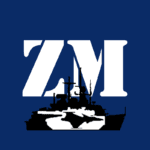This Tuesday, the Russian news agency TASS confirmed that the Admiral Gorshkov frigate from the Northern Fleet arrived in Tunisia so that its sailors could participate “in commemorative events dedicated to the centenary of the Russian squadron’s stay” in the country. Its arrival at the port of Bizerte demonstrates “the multifaceted constructive cooperation between Russia and Tunisia, which includes military collaboration,” according to Vadim Barabanov, Russia’s chargé d’affaires in Tunisia.
According to the press, on the same day, “the Russian Fleet flag was hoisted again in Bizerte after 100 years as part of the commemorative events.” Additionally, during the Russian ship’s stopover, multiple events will be held with representatives from the Russian Embassy in Tunisia, the Russian Science and Culture Center, the Tunisian Ministry of Defense, and the Tunisian Navy.

Currently, Tunisia maintains a friendly relationship with the United States, with whom it has cooperated in defense matters and capability acquisition. However, Russia considers the re-elected president, Kais Saied, to be a “friend” of their nation, and the visit of the Admiral Gorshkov frigate aligns with these aims.
It is also worth noting that the Admiral Gorshkov’s long-distance journey began on May 17, having covered over 23,000 nautical miles so far. The frigate also entered the Mediterranean Sea on July 24 of this year, where the crew practiced interaction with other ships and carried out a series of tasks.

With the central objective of “showing the flag and ensuring naval presence in operationally important areas of the maritime zone,” Russia’s campaign through the Admiral Gorshkov has also extended to the Americas, visiting the port of Havana in Cuba and the port of La Guaira in Venezuela.
On multiple occasions, the frigate was intercepted and patrolled in the seas it navigated throughout the year. For instance, on October 7, the Spanish Navy intercepted and monitored the frigate’s navigation in the Eastern Mediterranean, carried out by the ship Cristóbal Colón (F-105), part of NATO’s Standing Naval Maritime Group 2 (SNMG-2).
You may also like: The Russian Airborne Forces receive a new batch of modernized amphibious armored vehicles BTR-MD



